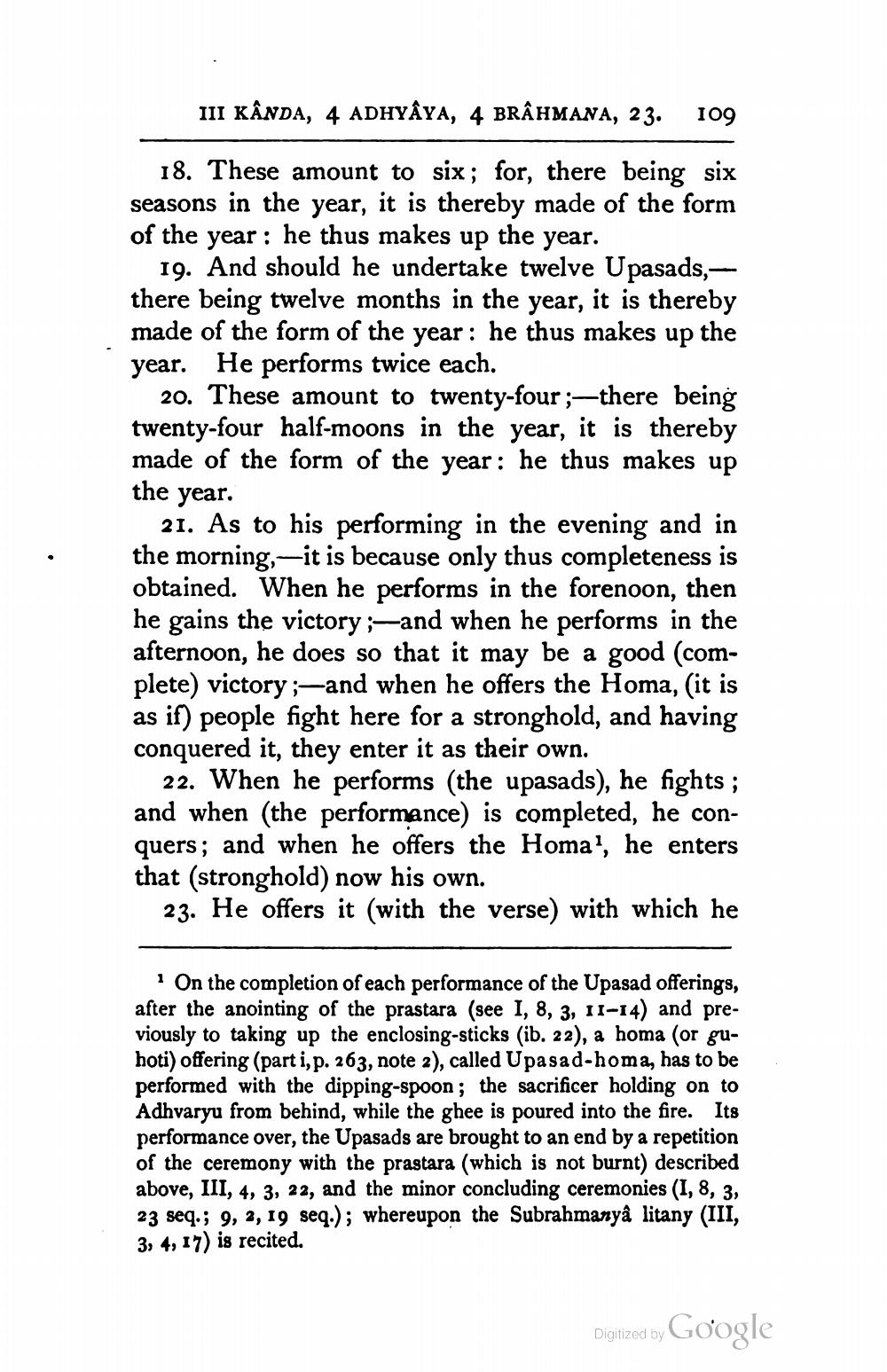________________
III KÂNDA, 4 ADHYÂYA, 4 BRAHMANA, 23.
109
18. These amount to six; for, there being six seasons in the year, it is thereby made of the form of the year: he thus makes up the year.
19. And should he undertake twelve Upasads, there being twelve months in the year, it is thereby made of the form of the year: he thus makes up the year. He performs twice each.
20. These amount to twenty-four ;—there being twenty-four half-moons in the year, it is thereby made of the form of the year: he thus makes up the year.
21. As to his performing in the evening and in the morning, -it is because only thus completeness is obtained. When he performs in the forenoon, then he gains the victory ;-and when he performs in the afternoon, he does so that it may be a good (complete) victory ;-and when he offers the Homa, it is as if) people fight here for a stronghold, and having conquered it, they enter it as their own.
22. When he performs (the upasads), he fights ; and when the performance) is completed, he conquers; and when he offers the Homa', he enters that (stronghold) now his own.
23. He offers it (with the verse) with which he
* On the completion of each performance of the Upasad offerings, after the anointing of the prastara (see 1, 8, 3, 11-14) and previously to taking up the enclosing-sticks (ib. 22), a homa (or guhoti) offering (parti, p. 263, note 2), called Upasad-homa, has to be performed with the dipping-spoon; the sacrificer holding on to Adhvaryu from behind, while the ghee is poured into the fire. Its performance over, the Upasads are brought to an end by a repetition of the ceremony with the prastara (which is not burnt) described above, III, 4, 3, 22, and the minor concluding ceremonies (I, 8, 3, 23 seq.; 9, 2, 19 seq.); whereupon the Subrahmanyâ litany (III, 3, 4, 17) is recited.
Digitized by Google




